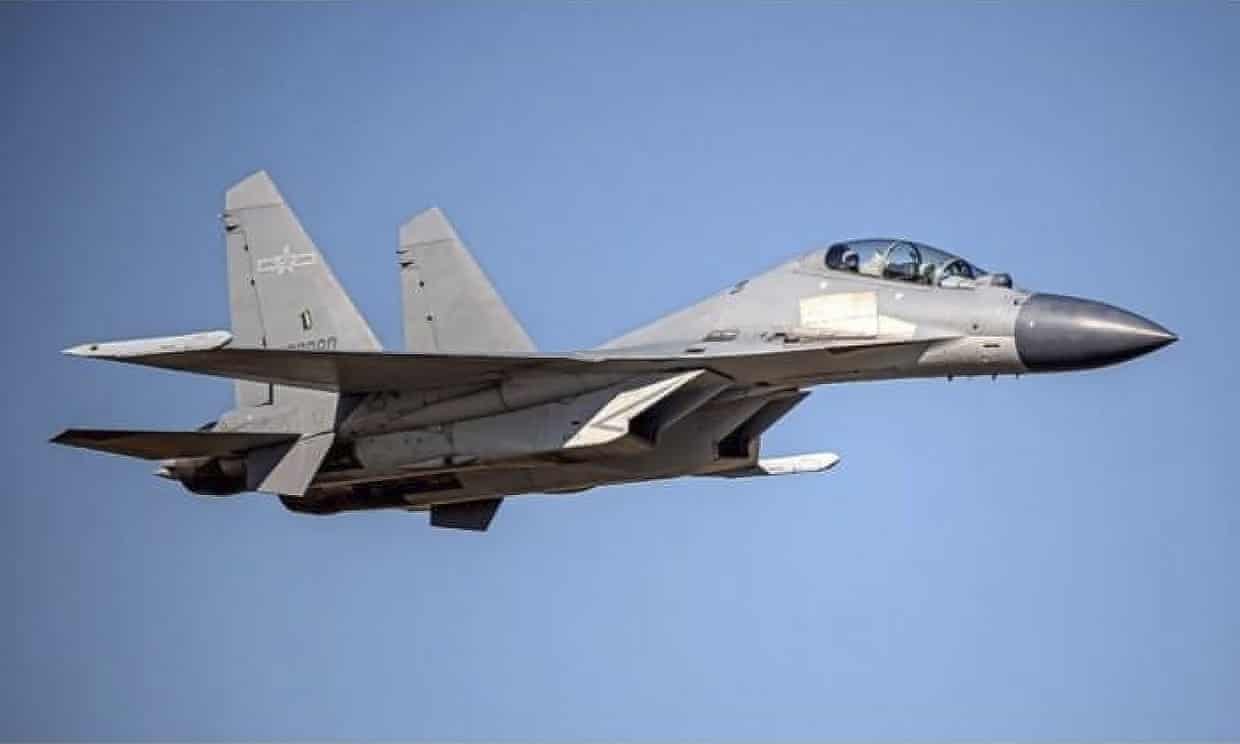Challenges and provocations continue in one of the world's hotly-contested places - this time with a low-tech solution to release a bundle of chaff, which contains small pieces of aluminium, some of which were ingested into the engine of the P-8 aircraft, deployed to exercise "the right to freedom-of-navigation and overflight in international waters and airspace”.
Chinese fighter jet’s actions near Australian aircraft ‘very dangerous’, deputy PM says
Defence reports J-16 jet released ‘chaff’ including aluminium shards in front of Australian flight in South China Sea region
"Australia has complained to China over its interception of a maritime surveillance flight in international airspace in the South China Sea region, which the deputy prime minister labelled “very dangerous”.
The defence department has revealed the interception of a “routine maritime surveillance activity” in a statement on Sunday, claiming it resulted in a “dangerous manoeuvre” that risked the safety of the Australian aircraft and its crew.
The incident on 26 May, just five days after the federal election, comes at a crucial juncture in Australia’s relationship with China, as Labor’s election provides a circuit-breaker to escalating rhetoric, although no substantial reset in policy has occurred. . .
The defence minister, Richard Marles, told reporters in Geelong the Chinese aircraft “flew very close to the side of the [Australia] P-8 maritime surveillance aircraft” then “released flares”.
“The J-16 then accelerated and cut across the nose of the P-8, settling in front of the P-8 at very close distance.”
“At that moment, it then released a bundle of chaff, which contains small pieces of aluminium, some of which were ingested into the engine of the P-8 aircraft. Quite obviously, this is very dangerous.”
[. ] In 2016 a UN tribunal overwhelmingly rejected China’s claims to ownership of the South China Sea. Australia has pledged to increase defence cooperation with the US in the South China Sea, while America has called on it to expand its commitment to freedom of navigation operations.
In February the defence department complained the lives of Australian Defence Force personnel could have been endangered after an aircraft detected a laser emanating from a Chinese ship.
The P-8A Poseidon detected a laser illuminating the aircraft while in flight over Australia’s northern approaches in the Arafura Sea, a move interpreted as linked to China’s displeasure about patrols of the South China Sea.
One week out from the election, the former defence minister Peter Dutton labelled the presence of a Chinese spy ship off the coast of Western Australia “an aggressive act” – despite the fact it was in Australia’s exclusive economic zone, not its territorial sea.
In response to a similar incident in November, Scott Morrison said China had “every right to be there under international maritime law, just like we have every right to be in the South China Sea”.


No comments:
Post a Comment